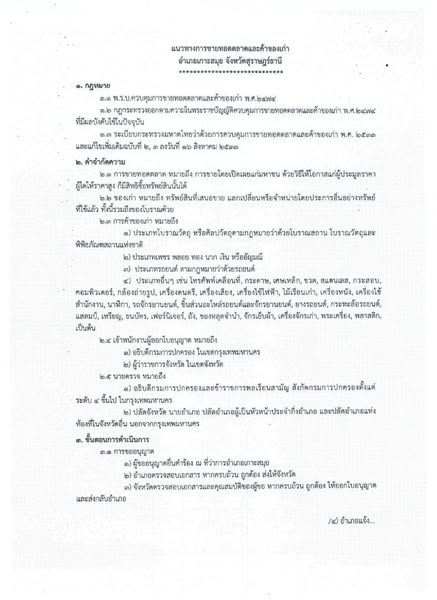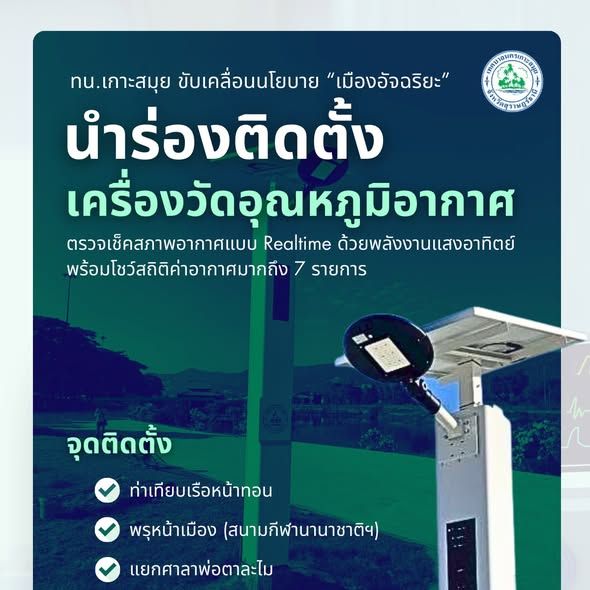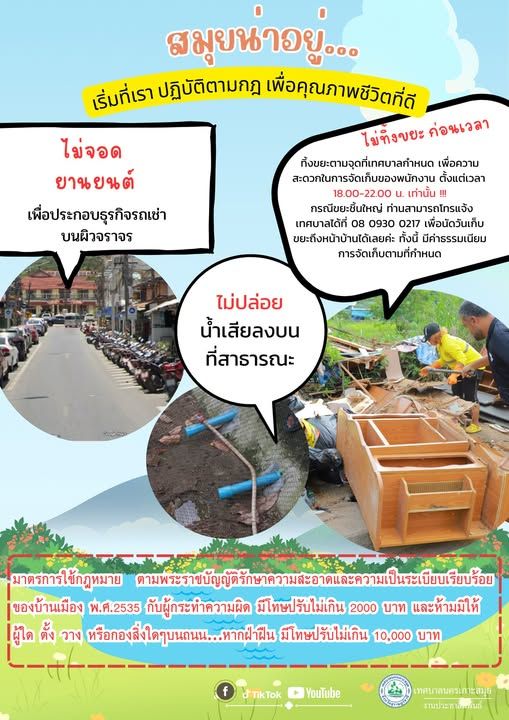Koh Samui businesses, be aware of new rules for public auctions and second-hand goods! Renew or obtain your licenses by December 31st to avoid fines and help maintain a strong, fair local economy.
KohSamui #BusinessRules #LicenseRenewal #LocalEconomy #ThailandBusiness #SamuiLife #TuristicThailand
Introduction to Regulatory Requirements
Koh Samui District in Surat Thani Province has announced updated guidelines for business operators involved in public auctions and the trade of second-hand goods. These measures are guided by the Public Auction and Second-hand Goods Control Act, B.E. 2474 (1931), aiming to ensure legal compliance and orderly business practices within the district.
Mandatory Licensing for Business Operators
All individuals or entities conducting public auction houses or engaging in the buying and selling of second-hand goods in Koh Samui are required to obtain appropriate licenses. This regulation covers both new applications and the renewal of existing licenses.
License Renewal Procedures
Business operators must observe the following steps for timely license renewal:
- Renewal Timeframe: Applications for license renewal should be submitted within the three-month period prior to license expiration, specifically from October 1 to December 31 each year.
- Late Renewal Penalties: If a renewal application is submitted after the deadline, the operator is subject to a fine, which must be settled before the license can be renewed.
- Required Documents: Operators should prepare all necessary documentation as prescribed by local administrative guidelines. This typically includes business registration details, previous license documentation, and personal identification.
Legal Basis and Compliance
Compliance with the Public Auction and Second-hand Goods Control Act, B.E. 2474 (1931), is mandatory. This legislation was enacted to ensure transparency in auctions and control the flow of second-hand goods, helping to prevent the circulation of stolen or illegal items.
Additional Advice for Business Operators
- Maintain Accurate Records: Keeping detailed records of all transactions and inventory is advised to facilitate the application and renewal process.
- Display of License: Operators must display their licenses prominently at their place of business to demonstrate compliance to authorities and customers.
- Cooperation with Inspections: Regular inspections may be conducted by district officials. Operators are encouraged to cooperate fully during these checks.
Contact Information
For detailed information or assistance regarding license applications or renewals, business operators can contact the Administration Division of the Koh Samui District Office at Tel. 077-420-883.
Benefits of Compliance
Adhering to these guidelines supports legal business operations, builds customer trust, and contributes to the overall integrity of the local economy. Proper licensing also helps law enforcement in tracking and preventing the distribution of stolen or unlawfully obtained goods.
Frequently Asked Questions
FAQ: Public Auction and Second-Hand Goods Trading Regulations in Koh Samui
What types of businesses need to obtain or renew licenses under the new Koh Samui regulations?
All individuals or entities operating public auction houses or engaging in the buying and selling of second-hand goods within Koh Samui must obtain the appropriate licenses. This includes both new businesses and those renewing existing licenses, as required by the Public Auction and Second-hand Goods Control Act, B.E. 2474 (1931).
When and how should business operators apply for license renewal to avoid fines?
License renewals must be submitted within the three-month window before license expiration, specifically from October 1 to December 31 each year. Late applications incur a fine that must be paid prior to license renewal. Required documents include business registration, previous license, and personal identification, as per local administrative guidelines.
Why is compliance with these regulations important for businesses in Koh Samui?
Compliance ensures lawful operation, supports transparency, and prevents the trade of stolen or illegal goods. It also strengthens customer trust, facilitates cooperation with authorities, and contributes to maintaining a healthy and fair local economy.




